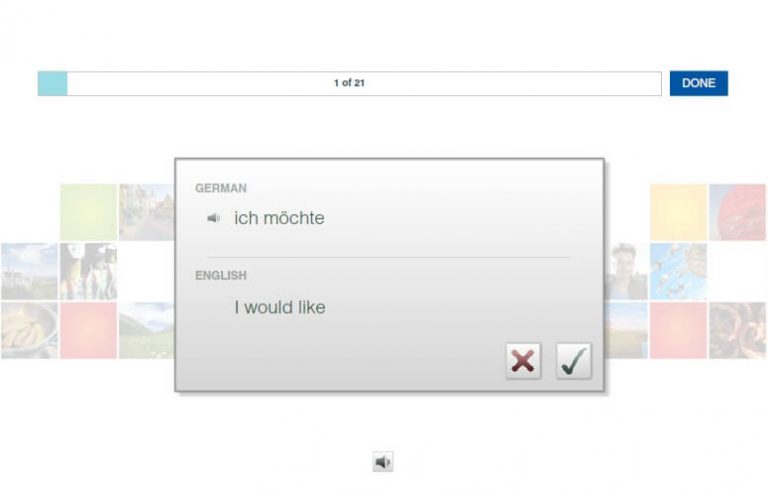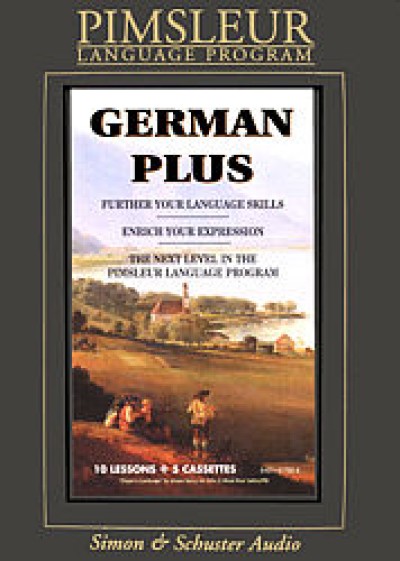

Pimsleur Review – My Three Favorite Things: Learn German with Pimsleur One: The Focus on Correct Pronunciation The Pimsleur course offered both the flexibility, as I could choose when and where I did my lessons, and the necessary structure to help me master the grammar and vocabulary.
#PIMSLEUR GERMAN 2 HOW TO#
In fact, the only thing I remember learning from Duolingo is how to say brot (bread) and wasser (water). I was traveling too often to continue the in-person night class, and the other apps simply didn’t offer enough structure to really build any foundational knowledge.

I figured I could certainly use all the help I could get, and so I gladly took Pimsleur up on the offer. When I started writing for the Pimsleur blog, I was offered the Pimsleur German Level 1 course to try out as well. I tried using language-apps (Duolingo and Babbel), and also signed up for a twice-weekly evening beginner class. Now, I don’t discriminate when it comes to tools to learn a language. For all these reasons, I chose to start with Hochdeutsch, but ultimately, whatever you choose will be based on your own personal language needs. And, if you are looking to get an official language certification (sometimes necessary for visas, jobs, or school), you will be tested on your written and oral High German skills. All written documents in Switzerland’s Germanic cantons, from the newspaper to contracts to invoices to phone apps, will be in High German. Many teachers will recommend first acquiring a strong basic foundation in High German before starting Swiss German. This makes the task of learning German difficult for foreigners – especially when your self-proclaimed “ear” for the language needs a lot of work.ĭeciding whether to learn High German or Swiss German is a question that plagues most expats in Zurich.

Swiss German has different pronunciation, grammar, and words. The most notable linguistic fact about German-speaking Switzerland is the use of dialects (Swiss German, Schweizerdeutsch) for spoken communication and standard German (High German, Hochdeutsch) for written communication. Since I live in Zurich, I am in the German-area of Switzerland and so, that is what I have been attempting to learn! High German vs Swiss German French is spoken in the west of Switzerland, while Italian is spoken in Ticino and in the south, and Romansh is only found in the Alpine canton of Graubünden. Where you live determines what you speak.

In fact, the country has four national languages: German, French, Italian, and Romansh (spoken by less than 1% of the population). And when it comes to languages, Switzerland has quite a few. As you might have guessed, learning new languages does not come easily to me. I’ve now been in Switzerland for nearly a year, and picking up German has been no easy feat. Those two words sounded exactly the same to me. It turns out I was a crazy-sounding American who was essentially shouting “Please!” at everyone on our hike…and at the store clerk, and the post office, and to the train ticket collector. “Alex, they are saying “ Grüezi !” to you, not “ bitte.” Grüezi is the casual way to say hello to someone in German, and thus, makes a lot more sense as a greeting. My friend stared at me for a minute, then doubled over laughing. “It’s so weird, though,” I said, “that the Swiss say ‘ bitte’ to you as a greeting.” Bitte means please, and while I thought it odd, whenever someone said it to me I went right along with it, responding with a cheery and triumphant “Bitte!” right back. While on a hike a few weeks after moving to Zurich, I commented to my friend that I was proud to be developing an ear for German. Learning a Foreign Language When Living Abroad


 0 kommentar(er)
0 kommentar(er)
